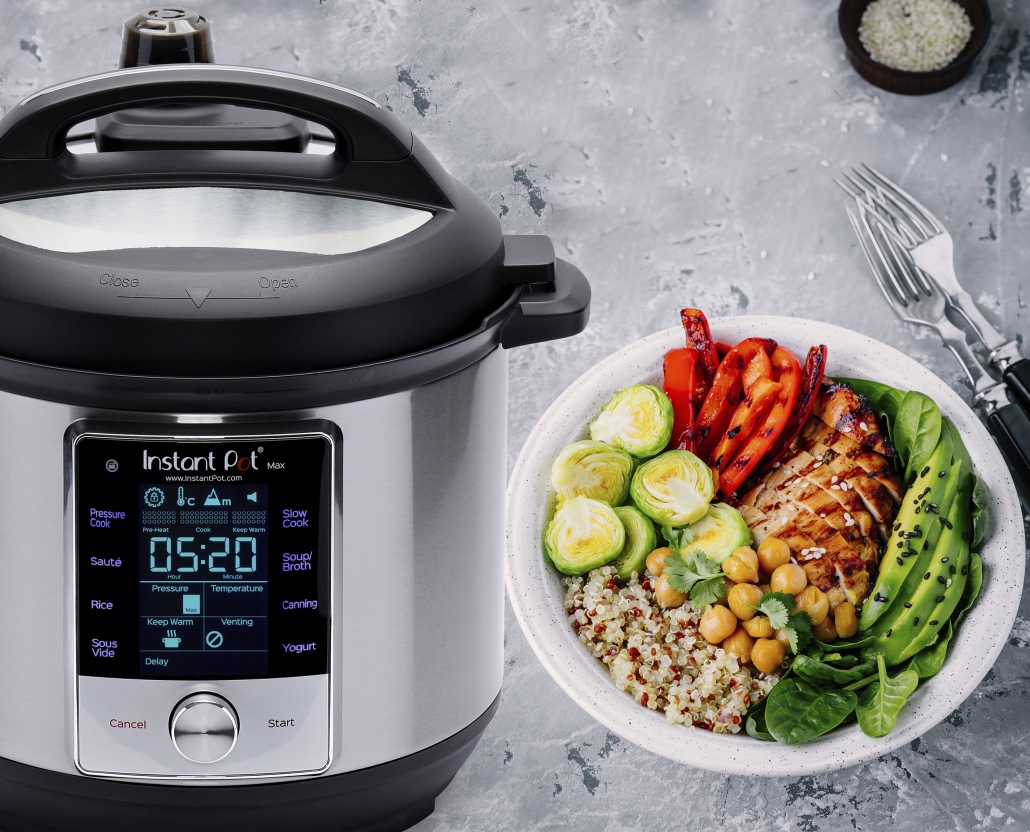To bastardize that infamous Herbert Hoover political ad, there was a time that it seemed like there was a chicken in every Instant Pot. That was actually the goal of Robert Wang, the creator of the countertop electric pressure cooker brand, who developed a simple internal mission statement after their sales had reached just over 10,000: “An Instant Pot in every kitchen, that is the objective of the company.”
And shortly after Instant Pot hit the market in 2010, it did swiftly develop a certain cult status among home cooks. Devotees call themselves Instant Potheads and the official Instant Pot Community on Facebook currently has 3.2 million members who gather to “ask questions, post unique recipes and inspiration, get useful tips, and share the joy of cooking with our innovative multi-cookers.”
Given Instant Pot’s popularity, it was surprising to some when last week Instant Brands, the maker of Instant Pot — as well as other household brands including CorningWare, Snapware and Pyrex — announced that it had filed for Chapter 11 bankruptcy, which is frequently referred to as a “reorganization” bankruptcy.
According to the New York Times, the move will allow the company to secure $132.5 million in funding and restructure, rather than liquidate its business, but the announcement caused many to ask how the finances behind a once (and arguably currently) beloved brand could be so shaky.
Here’s the breakdown of three of the key points surrounding Instant Pot’s business burn out — and what the future of the brand holds.
Ironically, one of the contributing factors to Instant Pot’s financial troubles is the fact that, for what it is, it is a genuinely useful, well-designed machine. As Amanda Mull succinctly wrote for the Atlantic, “the Instant Pot failed because it was a good product.”
Once you buy an Instant Pot, there is really no compelling reason to replace it — at least for a while. The rubber ring that helps the appliance seal properly is the most likely to go out first after a year or two, but those are easily replaceable, as are the inner pots used within the appliance. Die-hard Instant Pot users estimate that, even when used a few times a week, they can survive for up to six or seven years.
As Bon Appetit reported, “electronic multicooker devices,” including Instant Pot, saw a huge spike in popularity during the pandemic. The segment hit a record $758 million in 2020.
“But those numbers weren’t tenable,” they reported. “Sales in the category dropped by half by 2022, and in the first quarter of 2023, Instant Brands’ sales dropped 22 percent compared to last year. That dip marked the seventh consecutive quarter of declining sales for the company.”
In late 2022, Eater writer Bettina Makalintal decided that she was going to sell her barely-used Instant Pot on Facebook Marketplace, hoping to recoup some of the $76.20 she had paid for it. When she arrived on the site, she quickly realized she wasn’t the only one. “To my surprise, I found more than a handful,” Makalintal wrote. “Several were on their second markdown; a few listings lingered long after posting.”
She raised a question that is now prescient in retrospect: Are the Instant Pot’s glory days are behind us?
The glut of available aftermarket Instant Pots is troubling for the brand for two reasons. The first is that it points to the fact that, for every Instant Pothead, there is someone who has realized the appliance isn’t worth the countertop space; that also means that if someone wants to test the gadget, they don’t have to go to Instant Brands to get one.
It’s important to remember that, at the end of the day for corporations, bankruptcy is often a business decision.
“There is a world without leverage where the company making Instant Pots would be very profitable when many were sold, less profitable when fewer were sold, and would never risk bankruptcy,” wrote Felix Salmon for Axios. “In reality, Instant Pot’s owners borrowed hundreds of millions of dollars and spent a significant chunk of that money on R&D, developing new products and employing lots of people in the process.”
This was a high-risk strategy — one that failed, but it’s not necessarily all bad for everyone in Instant Brand’s orbit. According to a press release from Instant Brands, interim approvals granted by the court — including the go-ahead to receive the aforementioned $132.5 million in financing — allow the company to continue:
- Paying employee wages and benefits without interruption;
- Paying vendors, suppliers and distributors in full under normal terms for goods and services provided on or after the filing date; and
- Providing housewares and appliance products under its brands.
“We want to thank our lenders and all advisors for working with us and supporting us with new financing,” said Ben Gadbois, President and CEO of Instant Brands. “While we continue our efforts to strengthen our financial position, this court-approved financing gives us the ability to continue to provide all of our great products to consumers around the world during this process.”
How exactly Instant Brands will retool is unclear, but the company has launched a new website to update consumers on their progress called, fittingly, InstantBrandsRestructuring.com.
On it, the company writes: “As we move through this process, we remain focused on serving and connecting with our consumers around the world, and we are grateful for their trust in us and our products.”

